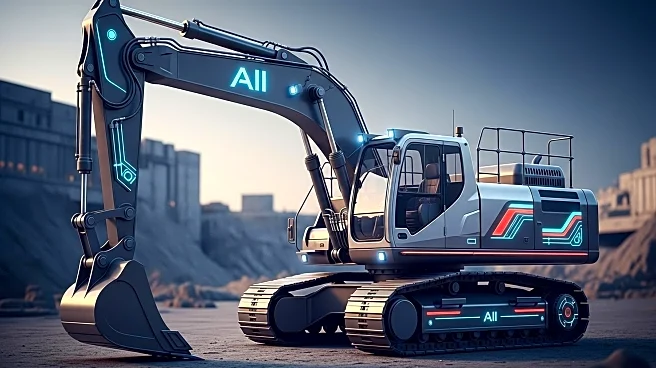What's Happening?
The excavator industry is undergoing significant technological advancements in 2025, with new models incorporating sensors, artificial intelligence, and automation. These features enhance precision, safety, and efficiency in construction operations. Companies like Develon, Hitachi Construction Machinery, and Caterpillar are leading the charge with excavators capable of semi-autonomous and remote operations. The integration of AI allows for predictive maintenance and optimized dig paths, while advanced sensor systems improve safety and operational accuracy. These innovations are reshaping the criteria for purchasing construction equipment, emphasizing technology and sustainability over traditional metrics like horsepower.
Why It's Important?
The introduction of AI and automation in excavators represents a major shift in the construction industry, promising increased productivity and reduced operational costs. These technologies enable more efficient use of resources, lower emissions, and enhanced safety, aligning with global sustainability goals. For contractors, the ability to operate machinery remotely or autonomously can mitigate labor shortages and improve job site safety. The trend towards smarter, greener construction equipment is likely to influence industry standards and regulatory requirements, pushing manufacturers to innovate further.
What's Next?
As the construction industry continues to embrace technology, future developments may include digital twin technology and swarm automation, where multiple machines work in coordination. These advancements could further enhance efficiency and reduce costs. The growing demand for sustainable construction practices will likely drive the adoption of hybrid and electric models, influencing market dynamics and investment strategies. Companies may also explore new materials and design innovations to improve equipment performance and environmental impact.









